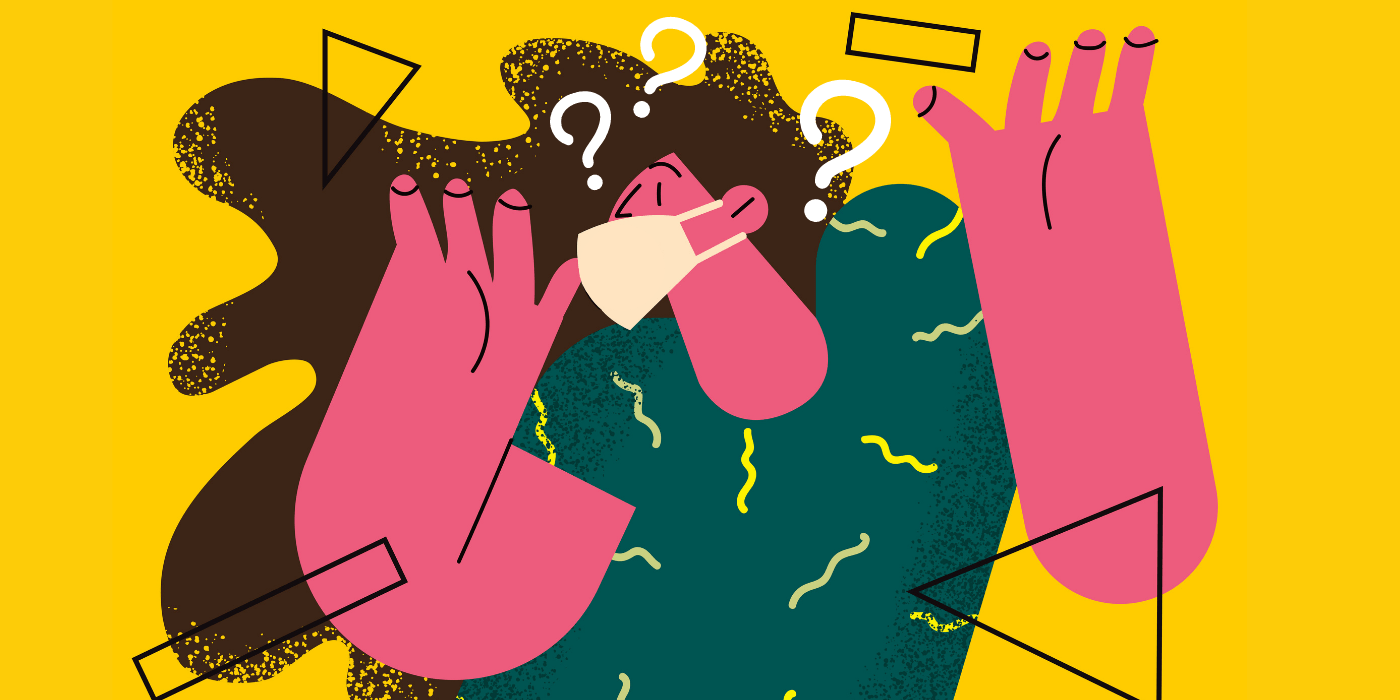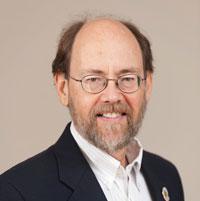

We're all confused about what we should be doing about masks—and with good reason. We are receiving conflicting information from the Centers for Disease Control and Prevention (CDC) and World Health Organization (WHO) on whether we should wear masks and continue to follow social distancing practices. And every day, the promise of a mask-free summer is called into question as we learn more about the Delta variant—a more contagious mutation of COVID-19.
To clear up the confusion, Bem Faris, communications and media manager for the SPH, sat down with Dr. Donald Milton, professor of applied environmental health at the University of Maryland and a leading expert on how viruses spread through the air, whose knowledge was in high demand throughout the pandemic as journalists worked to provide the latest information aimed at protecting health. Milton has decades of expertise studying how influenza and other respiratory viruses spread indoors and has been leading the University of Maryland Stop COVID study since last May to understand how people transmit COVID-19 and prevent its transmission.
The interview is condensed and edited for length and clarity.
Throughout the pandemic, there has been conflicting or inconsistent advice across agencies (WHO, CDC, etc.). Can you talk about the advice that they are giving about mask-wearing now?
The WHO is urging everyone, including fully vaccinated people, to continue to wear masks and practice other COVID-19 pandemic safety measures like social distancing. In contrast, the CDC is advising that fully vaccinated people can resume activities without wearing a mask or physically distancing.
Part of the reason for these inconsistencies is the differences in their audience.
The WHO is saying wear a mask because they're dealing with the global perspective and globally very few people are vaccinated.
On the other hand, the CDC caters to people in the United States who have been incentivized to get the vaccine with the promise of being able to ditch the mask.
My colleague, Professor Cynthia Baur [director of the SPH’s Center for Health Literacy] put it well. Telling people they can take their masks off if they get vaccinated might motivate people to get vaccinated if there weren't a lot of overlap between the anti-vaxxers and the anti-maskers. And the fact that those two groups are often the same means that that strategy does not work well.
It's a bad strategy and we're seeing that it's failing now. It's time for the CDC to admit it and go back to recommending that everyone wear masks.
So what advice should vaccinated Americans be following?
We still need to wear masks in public—both indoors and outdoors (outdoors, if in crowds or when close to others who might be unvaccinated for extended periods). We should wear masks anywhere where we are unsure of the vaccination status of the people around us; these places are considered hazardous environments. We also need to consider the ventilation of the space.
If you know everyone you are with is vaccinated and you're in a reasonably ventilated space, I don't see a need to wear masks. But when I go to a place like the grocery store, I wear one.
Another thing to remember is that there are many vulnerable people amongst us, and continuing to wear masks can help protect them. These vulnerable people could be immunocompromised, older, or they could be completely unaware that the vaccine didn't work on them.
So we can't let down our guard yet. We need to keep doing everything we can.
What do we risk if we don't?
I think that one of the problems with just dropping masks is that the Delta variant is spreading as schools reopen, and children who are not vaccinated go back to school. And although we know that the vaccine will protect us—even with the Delta variant—against severe disease and death pretty well, nothing is a hundred percent.
How worried should we be about the Delta variant?
The Delta variant is spreading, and it's very likely that it is very much more contagious by an airborne route. One hears anecdotal stories about vaccinated people who got the Delta variant and infected other vaccinated people, so it can happen.
Delta is just the next in the chain of the evolution of the virus. The evolutionary pressure on the virus will make it get more virulent as it gets more transmissible. So far, that's been true for Alpha, it appears to be true for Delta, and it will be true for the next one and the one after that.
Speaking of schools reopening, what are your thoughts and recommendations for reopening schools (especially for younger children)?
We have to do it, but I think it's problematic without the vaccine being authorized for children under 12.
Even then, there are ways to help prevent the spread of COVID in schools. A recent study in Science showed that COVID-19 interventions like mask mandates for teachers and students, extra space between desks, suspension of extracurricular activities and daily symptom screening among teachers and students are protective against COVID-19 transmission. Teacher masking and daily symptom screening appeared to be the most protective and the more interventions the better—except for one. That one was plexiglass desk shields, which made things worse.
For those of us who study aerosols, it was obvious because plexiglass desk shields block ventilation. So I've been trying to convince the state to recommend to school districts that they ditch the plexiglass.
How well do masks protect us, and what can we do to ensure our masks work effectively?
Part of the work we've been doing at my lab is looking at how much masks block the shedding of COVID. We looked at all types of masks, whatever the study participants brought in, including surgical, cloth and double-layered masks. In general, we found that masks reduce the amount of virus that people put out by about 60%.
Having everyone wearing a mask increases the protection. So a masked non-infected person would only be breathing in 40% of COVID particles that a masked infected person would be breathing out. That's something like 85% protection.
But all of this protection depends on how well the mask fits your face. One of the best things you can do to make sure your mask is effective is to make sure it fits snuggly. Using a fix the mask brace is one way to do this. Another is to double mask—with the surgical mask on the bottom.
I did some N95 fit tests with the fix the mask brace using some Zubrex and Armbrust surgical masks, and they passed or nearly passed the fit test for a respirator. So this $15 fancy rubber band and a good filtering surgical mask makes a big difference.
What other things can stores, restaurants, schools and other public places do as COVID-19 mitigation strategies?
One of the goals of my work is to try to understand how inhalation exposure to viruses work and how we can prevent them without having to throw a monkey wrench into everything. We need to engineer our spaces to be safe. Installing highly effective UV light air sanitation systems is one way to go about it.
The older systems, like the ones we use in our SPH clinical research, sanitize the air above our heads and circulate air with ceiling fans. The newest type of UV light sanitation system can flood a whole room in UV light and decontaminate surfaces and the air in between people.
After all, we don't drink water that hasn't been through a purification system. But we breathe air that's not purified all the time, and I think that needs to change.
What are your predictions for the fall and winter?
Besides COVID-19, there's been some modeling to suggest that because of a pattern of waning immunity, that we're going to have a big Respiratory Syncytial Virus (RSV, one of the viruses that cause the common cold) outbreak this year. It is a big problem for people with asthma and chronic lung disease and for babies.
And I'm also in the camp of thinking that maybe the flu will be big for similar reasons.
What do you want people to know?
Wearing a mask and practicing social distancing when in hazardous environments is important. But the most important thing we can do is to increase our vaccination rates.
Ultimately, the virus is going to stick around, and people have a choice. You can either get vaccinated, or you can get COVID. There's no option C.
I also want people to know that it's ok to be confused. Everybody is confused. We're all muddling through, trying to do the best we can. It's not your fault.